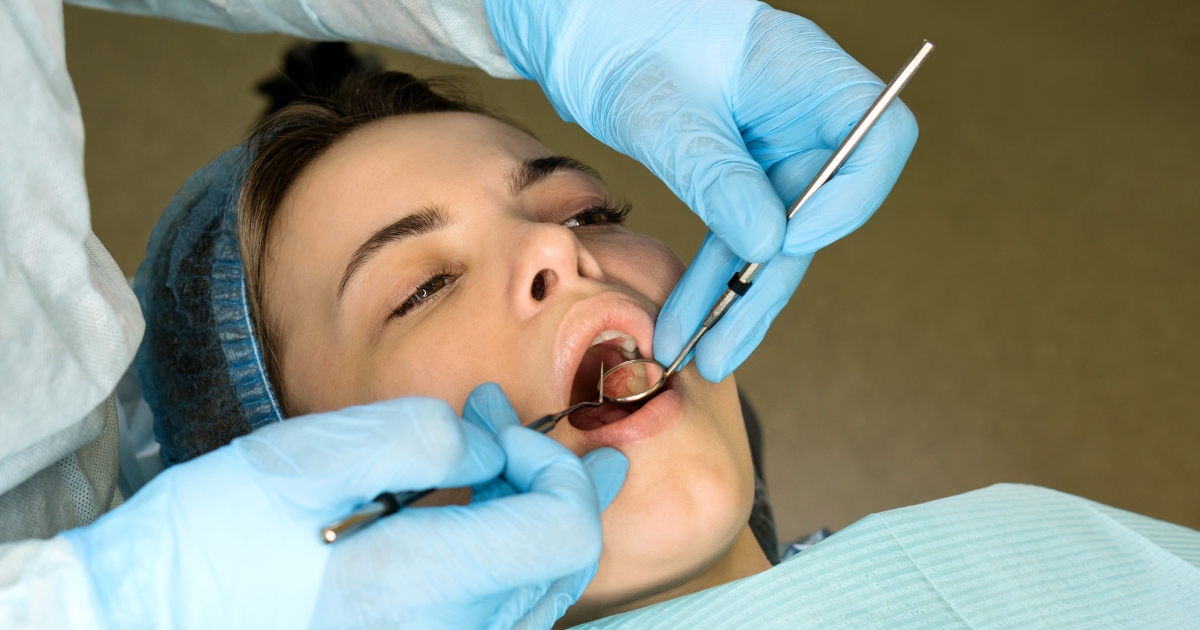Wisdom Tooth Extraction
Wisdom tooth extraction is a standard dental procedure to remove one or more wisdom teeth, also known as third molars.
Here is a comprehensive overview of wisdom tooth removal in Dubai covering essential aspects like the procedure itself, recovery, possible complications, and aftercare.
Understanding the Role of Wisdom Teeth in the Mouth
Wisdom teeth typically emerge between 17 and 25 and are the last set of molars to appear in the mouth. Historically, these teeth served a vital function for our ancestors, who had a much tougher diet than we do today.
- Evolutionary Purpose: Ancient humans needed wisdom teeth to help chew rough foods like roots and raw meat.
- Positioning: They are located at the back of the mouth, on both the top and bottom jaws.
- Variability: Only some people develop all four wisdom teeth; some may have fewer or none.
- Impacted Teeth: In many cases, there isn’t enough space for wisdom teeth to grow properly, leading to impaction.
- Oral Health Impact: Impacted wisdom teeth can cause various dental issues, including infections and misalignment.
- Modern Necessity: Given the evolution of our diets and dental care, wisdom teeth are often considered vestigial organs.
With the evolution of cooking and food processing techniques, as well as advancements in dental care, the function of wisdom teeth in modern humans has diminished. Today, our diets are softer and require less intensive chewing, which means our primary molars often remain in good condition into adulthood.
As a result, many people no longer have enough space in their jaws to accommodate the growth of wisdom teeth. This lack of space can lead to various dental issues.
Common Reasons for Wisdom Tooth Extraction

While some individuals don’t experience problems with their wisdom teeth, many do. Impaction, misalignment, crowding, and potential for infection are common reasons for their removal.
Regular dental check-ups can help determine if extraction is necessary.
Reason | Impact |
Overcrowding | Causes misalignment of adjacent teeth |
Impaction | It can lead to pain and infections |
Decay | Limited cleaning space increases decay risk |
Pain and Discomfort | Indicates problematic growth or infections |
Cysts Formation | Potential damage to bone or roots |
Regular Monitoring | Prediction of potential issues during dental checks |
The table lists the common reasons for wisdom tooth extraction and the associated impact on oral health.
Preparing for Your Wisdom Tooth Removal Procedure
Preparation is essential for ensuring a smooth wisdom tooth extraction. Patients are often advised on pre-surgery dietary restrictions and medications. It’s crucial to follow all guidelines to prevent complications.
- Consultation: A pre-surgery discussion with the dentist or oral surgeon about the procedure, risks, and recovery.
- X-rays: Provides a clear view of the position of the wisdom teeth.
- Dietary Restrictions: Some procedures may require fasting or avoiding certain foods before surgery.
- Medication Guidelines: Some medications may need to be stopped or adjusted pre-surgery.
- Arrange Transportation: Due to anaesthesia, patients usually can’t drive post-surgery.
- Post-Surgery Needs: Stocking up on soft foods and pain relievers is advisable.
The Surgical Procedure: Step-by-Step Guide

The procedure for wisdom tooth extraction varies based on their position and health. Generally, it involves making an incision, removing the tooth, and then stitching the wound. To ensure patient comfort, dentists often use local or general anaesthesia during the procedure.
- Anaesthesia: The patient is either given local sedation or general anaesthesia.
- Incision: The surgeon makes a small cut in the gum to expose the tooth and bone.
- Removal: If necessary, the tooth is removed, and the bone obstructs its removal.
- Cleaning: The site is cleaned of any debris from the tooth or bone.
- Stitching: The wound is stitched to promote healing.
- Gauze Application: A gauze is placed to control bleeding and aid clot formation.
Risks and Complications of Wisdom Tooth Surgery
Though a standard procedure, wisdom tooth extraction has risks. Possible complications include infection, prolonged bleeding, and nerve damage. Therefore, it’s important to follow post-operative care instructions and maintain communication with the dental professional.
- Dry Socket: A painful condition where the protective blood clot is lost.
- Infection: Proper oral hygiene post-surgery is crucial to prevent infections.
- Nerve Damage: Rarely, the surgery can damage nearby nerves, leading to numbness.
- Prolonged Bleeding: Some patients may experience bleeding longer than expected.
- Sinus Communication: Upper wisdom tooth extraction can sometimes open a connection between the mouth and the sinus.
- Swelling and Bruising: Common side effects, usually subsiding within a few days.
Post-Operative Care: Tips for a Smooth Recovery

After the surgery, specific care guidelines by your dentist ensure proper healing. This includes managing pain, monitoring for signs of complications, and maintaining a suitable diet. In most cases, recovery takes a few days to a week when you follow these guidelines.
- Pain Management: Over-the-counter painkillers can help, but always consult the surgeon.
- Swelling Control: Applying a cold pack can reduce swelling and discomfort.
- Oral Hygiene: Gentle rinsing with salt water can keep the surgical area clean.
- Avoiding Physical Activity: It’s best to rest and avoid strenuous activities post-surgery.
- No Smoking or Alcohol: These can hinder the healing process.
- Regular Check-ins: Schedule follow-up visits to ensure everything is healing correctly.
Managing Pain and Swelling After Extraction
It’s common to experience pain and swelling post-extraction. These symptoms usually peak within the first 48 hours and gradually improve. Adopting specific measures can alleviate discomfort.
- Cold Compress: Applying it to the cheek in intervals can reduce swelling.
- Prescribed Medication: Always take as directed by the dental professional.
- Elevate Head: Keeping the head elevated can decrease swelling.
- Avoid Hot Foods: They can increase swelling and cause discomfort.
- Loose Clothing: Wear clothes that don’t restrict blood flow, especially around the neck.
- Stay Hydrated: Drinking enough water can aid recovery.
Foods to Eat and Avoid Following Wisdom Tooth Removal
Diet plays a pivotal role in recovery. Soft foods that don’t require much chewing are recommended initially. Gradually reintroducing regular foods is vital, but certain foods should be avoided to prevent complications.
- Recommended Foods: Puddings, yoghurts, mashed potatoes, and smoothies are gentle on the surgical site.
- Avoid Crunchy Foods: Foods like popcorn or chips can get stuck and irritate the wound.
- Stay Away from Straws: The suction can dislodge the protective clot.
- No Hot Foods: They can increase swelling and discomfort.
- Limit Sugary Foods: They can increase the risk of infection.
- Gradual Transition: As healing progresses, reintroduce harder foods slowly.
The Importance of Follow-Up Appointments
Post-surgery check-ups are essential to monitor healing and address any concerns. The dental professional assesses the surgical site, checks for complications, and provides guidance. Always attend scheduled appointments for optimal recovery.
- Wound Assessment: Ensuring the surgical site is healing without complications.
- Stitch Removal: If non-dissolvable stitches were used, they’d need removal.
- Address Concerns: Any pain, swelling, or irregularities can be discussed.
- Oral Hygiene Guidance: Tips for maintaining cleanliness without disturbing the wound.
- Feedback on Recovery: Getting a professional opinion on the recovery’s progress.
- Peace of Mind: Ensuring everything is on track can provide significant reassurance.
Long-Term Effects and Benefits of Wisdom Tooth Extraction
Removing wisdom teeth can significantly benefit oral health. While there might be short-term discomfort, the long-term advantages often outweigh the temporary inconveniences. Potential issues like overcrowding, infections, and cysts can be prevented.
- Prevent Overcrowding: Extraction can ensure the alignment of other teeth is maintained.
- Avoid Infections: Impacted or partially erupted wisdom teeth can be breeding grounds for bacteria.
- Prevent Cysts: Removing problematic wisdom teeth can prevent cyst formation.
- Better Oral Hygiene: With the potential problem teeth gone, maintaining cleanliness becomes easier.
- Reduced Pain: Addressing impacted or infected wisdom teeth can relieve chronic pain.
- Overall Dental Health: Ensures a healthier oral environment in the long run.
Wisdom tooth extraction is a vital dental procedure to ensure your oral health’s well-being. Having wisdom teeth removed can alleviate pain and discomfort while preventing complications such as crowding, infection, and damage to adjacent teeth. If you’re experiencing wisdom tooth-related problems, a dentist can help determine whether extraction is necessary.
Ready to address your dental concerns? Schedule a consultation with Noa Dental Clinic today and take the first step towards a healthier, happier smile.
FAQs
Wisdom teeth are the third set of molars at the back of the mouth. They often need removal due to impaction, overcrowding, or the potential for infection.
No, not everyone needs to have their wisdom teeth removed. It depends on factors like their position, alignment, and impact on oral health.
The procedure itself is typically not painful, as patients are given anaesthesia. However, there may be discomfort and pain during the recovery period.
Recovery usually takes a few days to a week. However, complete healing can take several weeks, and it varies from person to person.
Yes, soft foods are recommended initially, and crunchy or hard foods should be avoided. Gradually, regular foods can be reintroduced.

